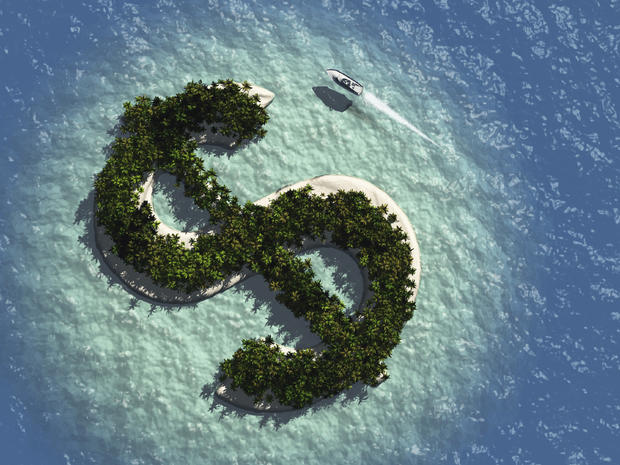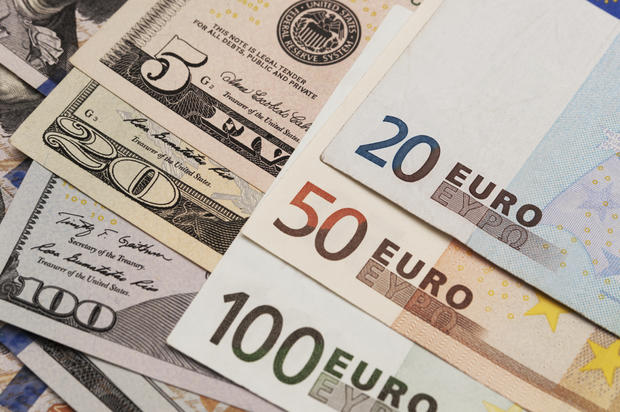How a strong dollar can give you a boost this summer
Let's talk currency.
Exchange rates are quite possibly the best friend a traveler can have. With the extra spending power a strong currency buys, it becomes possible to see sights like Angkor Wat and Machu Picchu at a significant discount.
Indeed, a cost-conscious vacationer can visit Southeast Asia alone for no more than $20 per day thanks to currencies like the baht and riel. The cost of airfare will dwarf the rest of the trip combined.
Coming from America, we typically have a huge advantage. The dollar is one of the strongest currencies in the world, and as a result, few countries don't offer some sort of currency advantage when traveling from the U.S. Over the past couple of years that position has only improved as the dollar gains against several currencies, including traditional powerhouses like the pound and the euro.
So, with summer upon us and vacations looming, how can you make the most of the strong dollar on your next trip?
Click ahead for a few tips.
Splash out on your hotel
Neither personal finance nor travel advice generally involves the word "splurge" but that's just what you have the opportunity to do here. Ordinarily to get luxury you have to stretch the budget, generally not a great idea, but this is a case where you might get more for the same amount.
"When I think about the strong dollar," said James Capolongo, head of retail deposit products with TD Bank, "it's not so much coming across airfare. I think where you really see some benefit is hotels and lodging, and that's usually a big cost when it comes to travel."
Currency fluctuations won't always make a difference at the local level. Last year, the euro hit 0.8 to the dollar, at time of writing that had improved to 0.9. Ten cents won't matter much on a three-euro baguette. Where you'll see savings is adding up the numbers. At 100 euros, 150, 200, all of a sudden this saves real money.
One approach, a smart one, is to pocket the windfall. On the other hand, it's your vacation. Perhaps take advantage of the extra spending power to get an upgrade or look into that hotel on the waterfront. With sites like Airbnb this can be particularly helpful. As Capolongo explained, sites like that can be "sticky" as owners stand firm on the price they want (as opposed to larger chains, which often adjust their prices to the market).
Well, maybe by now, the price has come to you.
Go to Europe… in the south
While discussing the euro, spend the euro.
Europe and Britain have long had two of the only common currencies stronger than the U.S. dollar, to the detriment of the union's sun-soaked tourist destinations in the south. Places like Greece, Spain and Italy could badly use infusions of tourist cash, so let's go give it to them.
The U.S. dollar is in a relatively rare moment of strength against the euro, and American travelers should take advantage of it. With rates nearing parity, this is one of the dollar's strongest positions against the euro in over ten years. While many are predicting a continued slide for the troubled currency, why wait? Europe is cheaper, so now's the time to visit.
And the south is where to start, at least for cost-conscious travelers. While the strong dollar will help you across the continent, Portugal, Spain, Italy and Greece are well-known as the most affordable destinations in the Eurozone. Greece alone has been ranked as one of the cheapest vacation spots not just in Europe but in the entire world.
These are particularly affordable choices for U.S. travelers right now. They're countries that need your business and besides, there's just nothing quite like a nightcap at Athens's Brettos Bar.
Buy currency now
Vacations aren't spontaneous events. Whether it's arranging time off for solo travelers or lining up the entire family's schedule for people with more complicated lives, very few people buy tickets 36 hours before they leave. (With airfare the way it is, who'd even want to?)
So, Capolongo recommended, if all the rest of your trip has been planned out in advance, why not lock in your currency advantage too?
"If you feel the dollar is strong and you feel good about where it is, you can actually look into exchanging currency now," he suggested. "You would need to be committed to exactly where you were going, but to be sure, you can do that."
Don't hit an exchange counter at the airport or, heaven forbid, the shopping mall. Use your bank; most major ones handle currency transactions and will do so with little or no charge to customers.
The same goes for paying in advance. If you're booking something now, and like the exchange rate, then by all means pay the bill. It's good financial hygiene anyway and you'll have paid up before that rates have a chance to shift in the hotel or tour's favor.
Don't go overboard though, otherwise you'll wind up with a wallet filled with useless notes. Yes, this is currency, so it will stay valuable, but it's just better to not come home clutching a fistful of Itchy and Scratchy money.
Book in foreign currencies
For some time now the Internet has been abuzz with the rumor that travelers can save big bucks by playing with the destination they claim to be flying out of. The idea is that many airlines will offer better local deals, or elevate tourist prices, and that by changing your point of sale you can snag cheap tickets.
There is a core of truth to this rumor, but you need to be careful.
When shopping on sites that allow it, try switching currencies. See how the airline prices your flight in local money and how that compares to the U.S. dollar. From time to time it can make a difference, and it certainly doesn't hurt to check.
But don't take anyone's advice about playing with your point-of-sale information -- that can, for several reasons, often invalidate the transaction.
Be careful with your credit card
Not everyone is ready for the fees that banks sometimes charge for overseas use.
It's a tricky balance, Capolongo said, because everyone spends in different ways. Some people have to remind themselves that those little bits of plastic aren't just magic money, while others of us can lose track of cash in our pockets.
However you spend, know how much your bank or credit card company will charge per use. Getting hit for three to ten percent per transaction can quickly wipe away any currency benefits, so look into it before leaving and structure your spending accordingly or consider a travel credit card that has no foreign transaction fees.





